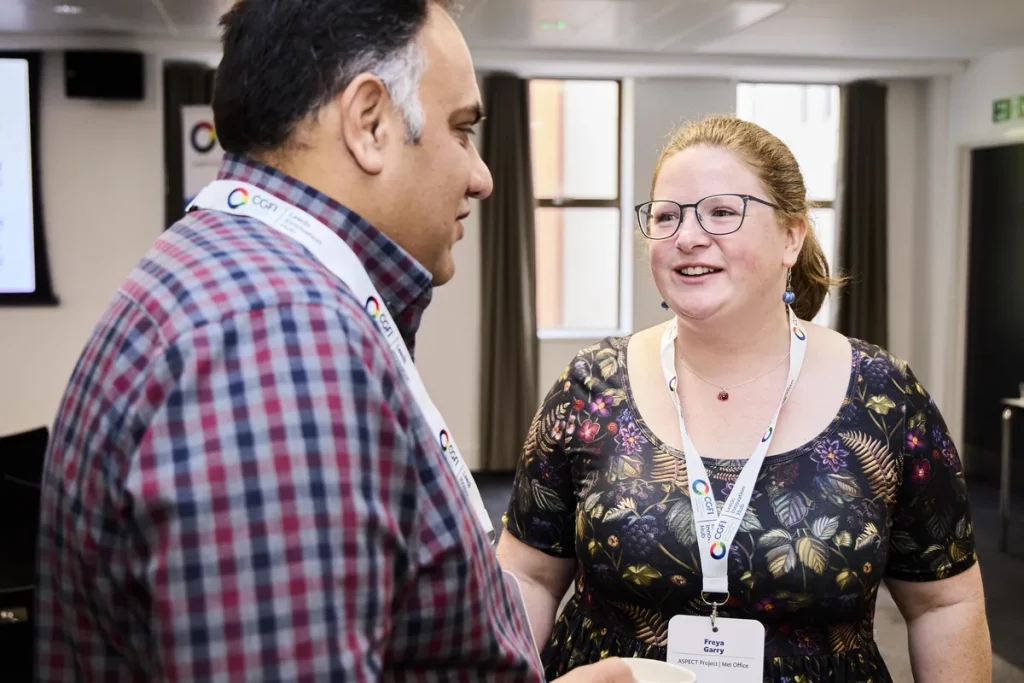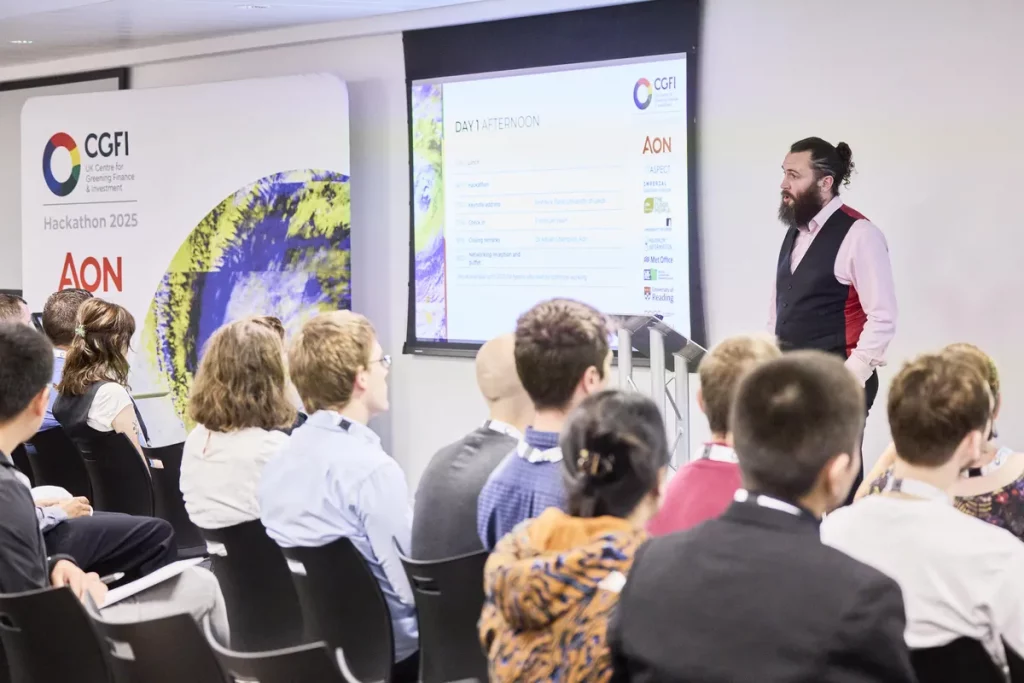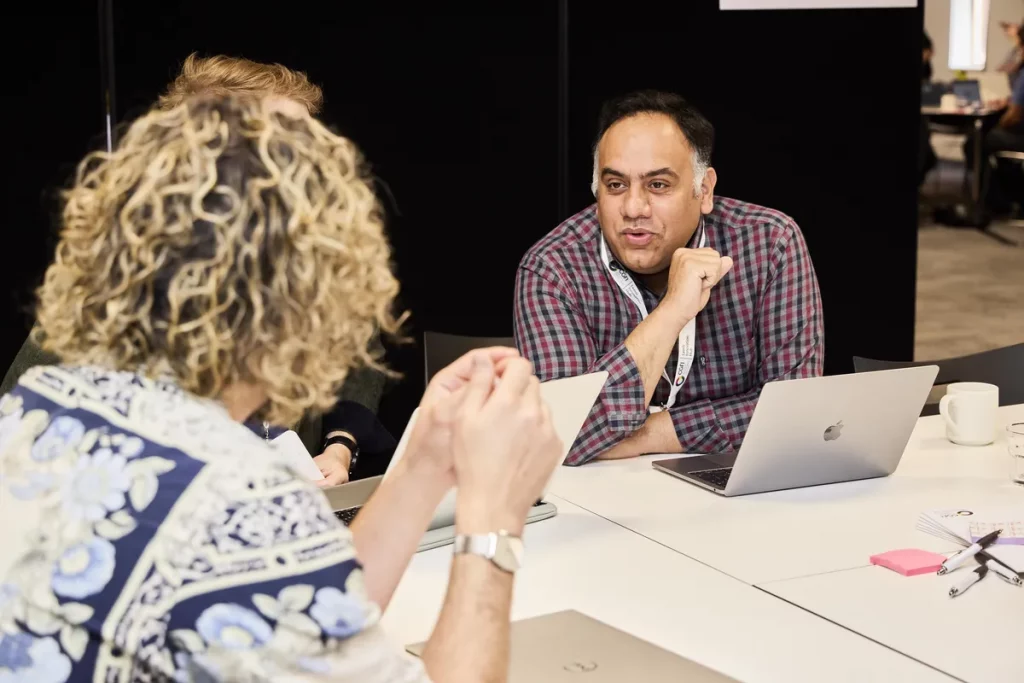As climate risk to society grows, the need for actionable, science-based insights in the finance sector will become ever-greater. The ASPECT project aims to make progress in addressing this need, working to provide climate information to support decision-making. Recently, ASPECT scientists played a key role in organising a hackathon focused on tropical cyclone risk in the reinsurance industry.
Held on 10–11 June, the hackathon was led by the UK Centre for Greening Financial Investment and hosted by ASPECT partners, the University of Leeds. Reinsurance experts from Aon and other industry partners contributed valuable industry perspectives, helping to shape the scientific challenges tackled by participants.
ASPECT’s role and impact
Over the past nine months, Dr Freya Garry, one of our climate services scientists from the Met Office (UK), played an important role in steering the hackathon’s organisation. Reflecting on the experience, she shared:
“Being involved with the hackathon has been a great opportunity to build links across research and industry. It’s really important that we understand industry needs to provide data, research, and information that benefits society. Working closely with experts from different sectors has brought fresh perspectives and helped build valuable networks.”
A key contribution from ASPECT was providing guidance on the use of decadal climate simulations—currently a relatively underused resource in climate services and industry. Freya adds:
“Prediction model data are not straightforward to use in a meaningful way, so explainers and training to help technical users with analysing and interpreting these data are an important part of providing climate services.”
By making a range of new prediction data publicly available, ASPECT consortium members are working to make prediction simulations more accessible, helping support the broader use of this climate information for decision-making across research and within industry sectors.
Dr Muhammad Adnan Abid, an ASPECT scientist from the University of Oxford, also attended the hackathon. He shared:
“It was a great experience to be part of the hackathon. It provided an opportunity to build a bridge between science and industry. This kind of engagement helps us understand what climate information the industry needs. It was a strong example of a co-development framework—bringing together experts from different sectors, initiating dialogue, and fostering collaboration.”
What’s next?
As ASPECT continues to make its data and tools more accessible, we’re excited to see how collaborations like this can drive innovation in climate-informed finance. Stay tuned to our newsletter for updates on how to access new ASPECT simulations and insights.
We thank UK Centre for Greening Financial Investment for an excellent job leading the hackathon, and have enjoyed working with many partners who helped shape the challenge Aon, Grantham Institute – Climate Change and the Environment, JBA Risk Management, Maximum Information, University of Reading, Met Office, NERC: Natural Environment Research Council, University of Leeds, Oasis Loss Modelling Framework Ltd., and JASMIN (STFC).


